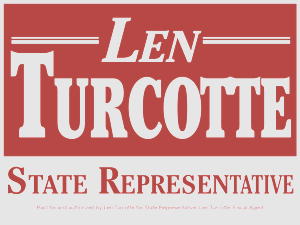https://www.unionleader.com/opinion/op-eds/dee-jurius-jason-bedrick-education-freedom-accounts-would-give-everyone-a-choice/article_d8af594a-31a6-533e-b9b7-900bb27bce5b.html
Dee Jurius & Jason Bedrick: Education Freedom Accounts would give everyone a choice
SO HOW’S THIS school year working out for ya?
Since schools started shutting down last spring in response to the coronavirus, a lot of families have found themselves stuck in remote or hybrid instruction they didn’t choose and don’t want – even if a better option is available nearby.
New Hampshire’s education system doesn’t give families a lot of options – or power.
The state provides each student a certain amount of money for their education every year. However, the law forbids parents from deciding where to spend those education dollars.”
Though the purpose of the money is to educate the child, the law doesn’t allow it to be spent on most educational services. It can be spent only at a public school, regardless of whether available alternatives might work better for the child or the family.
It doesn’t have to be this way. Several states have changed their laws to let families use their state education dollars in the broader education marketplace. Now, New Hampshire is considering one of those models.
A proposal in the Legislature would create “education freedom accounts” (EFAs), which would let families use a portion of the state funding already allocated for their child to pay for a wide variety of educational options, including private school tuition, tutoring, textbooks, curricular materials, educational therapy, and more.
The EFAs are similar to policies already in place in five other states. Though they go by different names – e.g., empowerment scholarship accounts in Arizona or education savings accounts in Florida – they all share a primary purpose of empowering families with greater freedom and flexibility to customize their children’s education to meet their individual learning needs.
The families who have been fortunate enough to benefit from EFA policies in other states report being highly satisfied. For example, the first-ever survey of EFA families in Arizona found parents were universally satisfied with the education their child received using an EFA, including seven in 10 families who were “very satisfied.” Moreover, families from the lowest income quintile were simultaneously the most likely to be dissatisfied with their previous public school (67 percent) and the most likely to say they were very satisfied with their EFA (89 percent).
It’s no wonder then that support for funding students instead of systems is so high. According to a recent nationwide survey, 76% of parents of school-age children expressed support for an EFA policy while only 11% were opposed.
Critics of the EFA legislation have expressed concerns about the effects of such a proposal on the district schools that most Granite State students attend. After all, if there were a mass exodus of students from their assigned schools, how could they continue to operate?
Fortunately, we have more than two decades of experience and a score of studies to answer that question. In no state has there been a mass exodus from traditional public schools. Instead, there is a mountain of evidence that choice policies have the net effect of improving public education.
There have been 27 studies examining the effects of private educational choice policies—like EFAs, vouchers, and tax-credit scholarships—on the academic performance of students who don’t choose those options but instead remain in public schools. Of those, 25 have found positive effects, one study found no visible effect, and one study found negative effects.
In other words, when families have more options, public schools have a stronger incentive to be more responsive to families and therefore tend to improve their performance.
Critics also raise alarms about the potential fiscal impact, but here again the evidence says something very different than what critics are saying.
According to a new fiscal analysis by the New Hampshire Department of Education, EFAs would generate $360 million to $390 million in savings for Granite State taxpayers over the next decade.
That’s because the EFAs only redirect the state portion of K-12 per-pupil funding, which is about $4,600 on average, after factoring in additional needs-based aid. It does not touch the local or federal portions.
The EFA scholarship amount comes to less than a quarter of the nearly $20,000 average per-pupil cost of New Hampshire public schools.
Education Freedom Accounts would not defund public schools or harm students. They would simply give parents the option of choosing where their education dollars are spent. That option, by the way, could even be another district public school.
Our children shouldn’t suffer because the state keeps rigid policies on the books that prevent parents from pursuing the education setting that works best for their children. Education Freedom Accounts would finally let parents find an education that fits rather than tying them to the one that’s closest.
Dee Jurius is the Community Education Fellow at the Josiah Bartlett Center for Public Policy. Jason Bedrick is Director of Policy at EdChoice. Both are former New Hampshire legislators.
